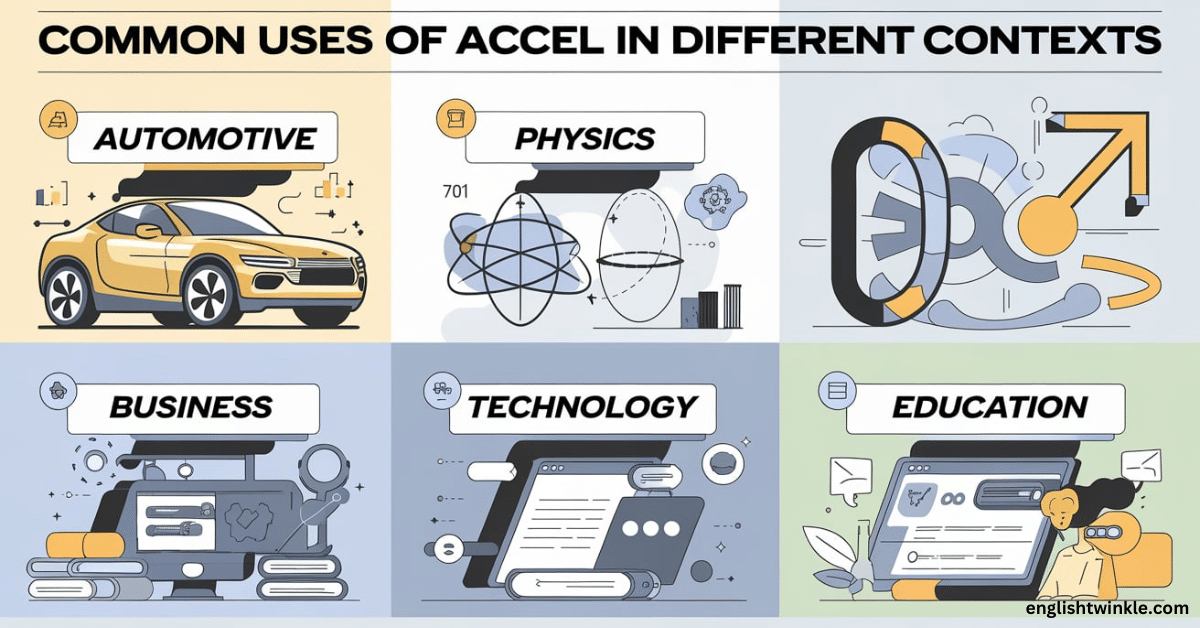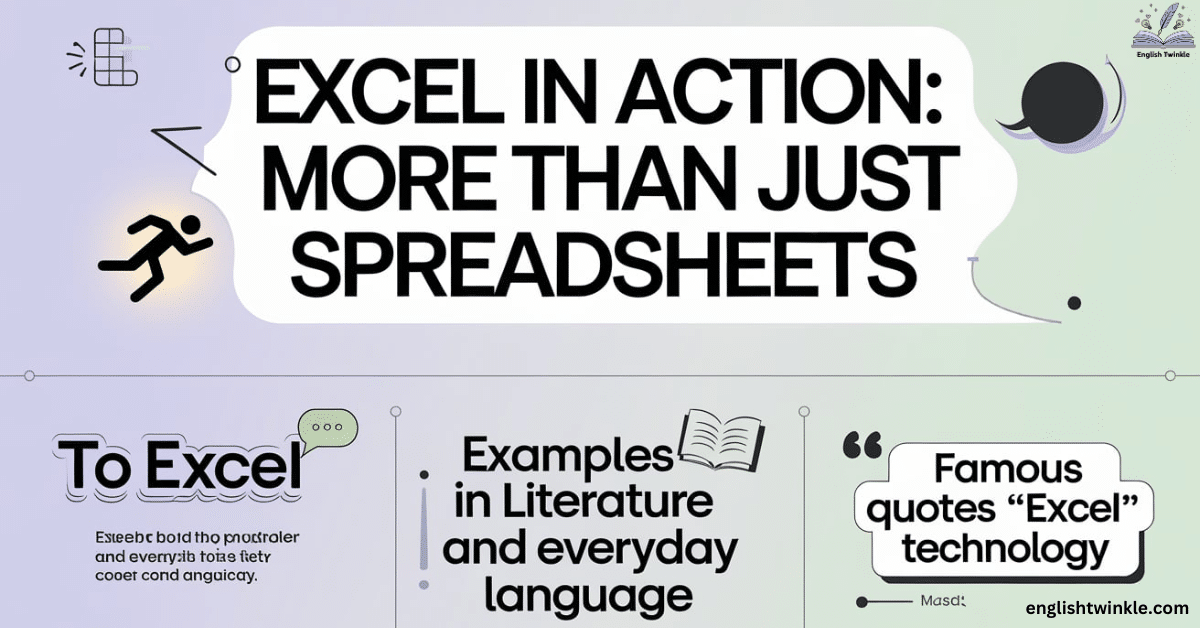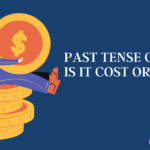In the fast-paced realm of language and technology, two words often cause confusion: Excel and Accel. While they may sound similar, their meanings and applications couldn’t be more different. This comprehensive guide will dive deep into the nuances of these terms, exploring their origins, uses, and impact on our professional and personal lives. Whether you’re a data analyst crunching numbers or a car enthusiast talking about velocity, understanding the distinction between Excel and Accel is crucial for clear communication and performance in various fields.
Excel: The Powerhouse Spreadsheet Program
A Brief History of Microsoft Excel
Microsoft Excel, often simply called Excel, has revolutionized the way we handle data and perform calculations. Launched in 1985, Excel wasn’t the first spreadsheet software, but it quickly became the most popular. Its journey from a simple number-crunching tool to a sophisticated data analysis platform is a testament to Microsoft’s commitment to innovation and user needs.
| Year | Excel Version | Key Features Introduced |
|---|---|---|
| 1985 | Excel 1.0 | Basic spreadsheet functions |
| 1993 | Excel 5.0 | Visual Basic for Applications (VBA) |
| 2007 | Excel 2007 | Ribbon interface |
| 2013 | Excel 2013 | Power Query and Power Pivot |
| 2019 | Excel 2019 | Dynamic arrays and XLOOKUP |
Key Features and Uses
Excel’s versatility makes it an indispensable tool across various industries. Here are some of its standout features:
- Data visualization: Create compelling charts and graphs
- Financial modeling: Build complex financial models and forecasts
- Statistical analysis: Perform in-depth statistical calculations
- Database management: Organise and filter large datasets
- Automation: Use macros and VBA to automate repetitive tasks
“Excel is not just a tool; it’s a language of business.” – Anon, Finance Professional
Why “Excel” is the Correct Spelling for the Software
The term “Excel” in Microsoft Excel is derived from the verb “to excel,” meaning to surpass others or to be outstanding at a particular activity. This choice of name was no accident. Microsoft aimed to create a spreadsheet program that would excel in functionality and user experience, surpassing competitors like Lotus 1-2-3.
Accel: Putting the Pedal to the Metal
Origins and Etymology of “Accel”
“Accel” is an abbreviation of “accelerate,” which comes from the Latin word “accelerare,” meaning to hasten or to quicken. In physics, acceleration refers to the rate of change of velocity over time. This concept has found its way into various aspects of our lives, from automotive engineering to business growth strategies.
Common Uses in Different Contexts

The term “accel” and its variations are used in multiple fields:
- Automotive: Accel pedal (accelerator)
- Physics: Measuring acceleration in m/s²
- Business: Accelerating growth or market penetration
- Technology: Accelerators for startups
- Education: Accelerated learning programs
Why People Might Confuse it with “Excel”
The confusion between “accel” and “Excel” often stems from their similar pronunciations and their associations with performance and achievement. Both terms evoke ideas of progress and improvement, albeit in different contexts.
The Nitty-Gritty: Spelling and Pronunciation
Breaking Down “Excel” (ex + cel)
“Excel” is composed of two parts:
- “Ex-” : A prefix meaning “out of” or “beyond”
- “-cel” : From the Latin “cellere,” meaning “to rise”
Together, they form a word that literally means “to rise beyond,” aligning perfectly with the idea of surpassing expectations or standards.
Breaking Down “Accel” (ac + cel)
Similarly, “accel” can be broken down:
- “Ac-” : A variant of “ad-” meaning “to” or “toward”
- “-cel” : Again, from “cellere,” meaning “to rise”
In this case, the combination suggests movement toward rising or increasing speed.
Tips for Remembering the Difference
To avoid confusion, consider these memory aids:
- Excel has an ‘x’ like in ‘extra’ – think of going above and beyond
- Accel starts with ‘ac’ like in ‘action’ – think of moving or speeding up
Excel in Action: More Than Just Spreadsheets

“To Excel” as a Verb
While Microsoft Excel is a noun, “to excel” is a verb meaning to surpass others or to be exceptionally good at something. This versatile word applies to various areas of life, from academic pursuits to professional achievements.
Examples in Literature and Everyday Language
- “She excels in mathematics, consistently scoring top marks.”
- “The company excelled in customer service, earning numerous awards.”
- “His ability to excel under pressure made him a valuable team member.”
✔️ Quick Note:
- ✨ Excel: To surpass or achieve greatness, often referring to performance or skills.
- ⏩ Accel: An informal short form of “accelerate,” meaning to speed up or increase velocity.
Use Excel for excellence and Accel for acceleration.
Famous Quotes Using “Excel”
“The will to excel and the will to win, they endure.” – Vince Lombardi
“Those who excel in virtue have the best right of all to rebel, but then they are of all men the least inclined to do so.” – Aristotle
These quotes highlight how “excel” is often associated with outstanding performance and moral virtue.
Accel in the Fast Lane
Use in Automotive and Tech Industries
In the automotive world, “accel” is shorthand for acceleration, a crucial performance metric. Car enthusiasts often discuss 0-60 mph times or quarter-mile acceleration figures. In the tech industry, accelerators are programs designed to speed up the growth of startups through mentorship and resources.
“Accel” in Gaming and Esports
Gamers use “accel” to refer to mouse acceleration settings, which can significantly impact gaming performance. In racing games, mastering acceleration is often key to victory.
Scientific Applications of Acceleration
Acceleration plays a vital role in various scientific fields:
- Physics: Fundamental to understanding motion and force
- Aerospace: Crucial for rocket launches and aircraft design
- Particle physics: Used in particle accelerators for research
When Worlds Collide: Excel and Accel Together
Using Excel to Calculate Acceleration
Ironically, Microsoft Excel is an excellent tool for calculating and analyzing acceleration data. Here’s a simple example of how you might use Excel to calculate acceleration:
In this table, acceleration is calculated as the change in velocity over time.
Accelerating Your Work with Excel Skills
Mastering Excel can significantly accelerate your productivity in data analysis and business operations. Advanced Excel skills can dramatically speed up your workflow and enable more sophisticated analyses. Here are some key features:
| Time (s) | Velocity (m/s) | Acceleration (m/s²) |
|---|---|---|
| 0 | 0 | – |
| 1 | 5 | 5 |
| 2 | 12 | 7 |
| 3 | 21 | 9 |
| Excel Feature | Description | Impact on Productivity |
|---|---|---|
| Power Query | Data transformation tool | Streamlines data cleaning and shaping |
| Power Pivot | Data modelling tool | Enables complex data relationships |
| DAX | Data Analysis Expressions | Allows for advanced calculations |
The Irony: Excelling at “Accel” Calculations
There’s a beautiful irony in using Excel to excel at acceleration calculations. This intersection of terms highlights how language and technology often intertwine in unexpected ways. Let’s compare the two concepts:
| Aspect | Excel | Acceleration |
|---|---|---|
| Primary Domain | Software/Business | Physics/Motion |
| Key Concept | Data Analysis | Rate of Velocity Change |
| Goal | Improve Decision Making | Understand Motion |
| Tool for the Other | Excel can calculate acceleration | Acceleration concepts can improve Excel models |
This comparison showcases how these seemingly distinct concepts can complement each other in practical applications.
Accelerating Your Work with Excel Skills
Mastering Excel can significantly accelerate your productivity in data analysis and business operations. Advanced Excel skills like:
- Power Query for data transformation
- Power Pivot for data modelling
- DAX (Data Analysis Expressions) for complex calculations
can dramatically speed up your workflow and enable more sophisticated analyses.
The Irony: Excelling at “Accel” Calculations
There’s a beautiful irony in using Excel to excel at acceleration calculations. This intersection of terms highlights how language and technology often intertwine in unexpected ways.
Common Mistakes and How to Avoid Them

Spell Check Fails and Auto-correct Mishaps
Both “Excel” and “accel” are valid words, which means spellcheck won’t always catch misuse. Always proofread your work, paying special attention to context.
Context Clues for Choosing the Right Word
- If you’re talking about spreadsheets or data analysis, you’re probably referring to Excel.
- If you’re discussing speed, motion, or growth, you likely mean accel(erate).
Mnemonics for Remembering “Excel” vs. “Accel”
- Excel for Exceptional spreadsheets
- Accel for Acceleration and Action
Beyond Words: Cultural Impact
Excel’s Influence on Business Culture
Microsoft Excel has become so ubiquitous that it’s changed the way we think about and interact with data. Terms like “spreadsheet thinking” have entered the business lexicon, reflecting how Excel has shaped problem-solving approaches.
The “Acceleration” Mindset in Modern Society
Our society’s obsession with speed and growth is reflected in the prevalence of “acceleration” as a concept. From “accelerated learning” programs to business “accelerators,” we’re constantly seeking ways to speed up processes and achieve results faster.
How Language Shapes Our Perception of Speed and Success
The words we use influence how we think. The prevalence of terms like “excel” and “accelerate” in business and personal development contexts reinforces societal values of continuous improvement and rapid progress.
Conclusion
Understanding the difference between “Excel” and “accel” is more than just a matter of correct spelling. It’s about appreciating the nuances of language and how words shape our perception of performance, achievement, and growth. Whether you’re using Microsoft Excel to analyse data or working to accelerate your personal development, these terms reflect our society’s values of excellence and progress.
As we’ve explored, Excel and accel, despite their similar sounds, occupy distinct spaces in our language and culture. Excel, the powerful spreadsheet tool, has revolutionised how we handle data and make decisions. Accel, rooted in the concept of acceleration, embodies our fascination with speed and progress.
By mastering the use of these terms, you’re not just improving your language skills; you’re gaining insight into the values that drive our technological and professional landscapes. So whether you’re excelling at your job or accelerating towards your goals, remember: the right word can make all the difference.
FAQs
Is there an “Accel” software program?
While there isn’t a widely known software called “Accel,” there are various acceleration-related tools and programs in different fields, such as physics simulators or business growth platforms.
Can “excel” be used as a noun?
Yes, “excel” can be used as a noun when referring to Microsoft Excel. For example, “I need to open this file in Excel.”
What’s the opposite of “accel”?
The opposite of accelerate (accel) would be decelerate or slow down.
How do other languages handle these concepts?
Many languages have borrowed the term “Excel” for the Microsoft product. For acceleration, languages often have their own terms derived from similar roots to the English word.
Resources for Further Learning
- Microsoft Excel Official Training Center
- Khan Academy Physics: Acceleration
- Merriam-Webster Dictionary: Excel
- Merriam-Webster Dictionary: Accelerate
By delving into these resources, you can further enhance your understanding of both Excel as a tool and the concept of acceleration, enabling you to excel in your use of language and technology alike.

Freck John, linguist and English educator, shares grammar insights and writing tips at English Twinkle, making language concepts accessible to all learners.







